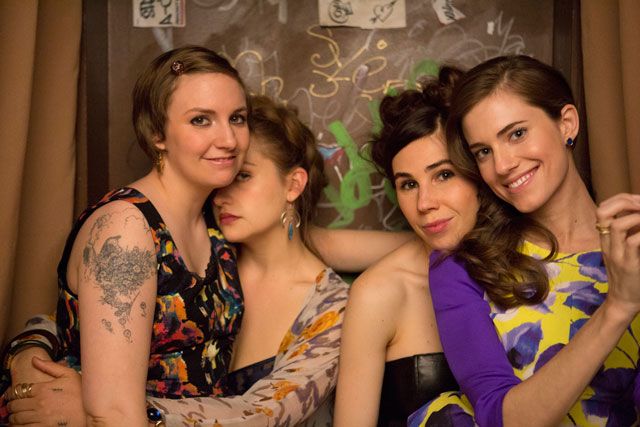On Sunday, March 16, HBO’s series “Girls” sent out a bittersweet goodbye after five years of friendship, romance and a lot of nudity. In the pilot episode, Hannah Horvath, Girls’ narcissistic but lovable heroine, played by the show’s writer and director Lena Dunham, explains to her parents that she thinks she might be the voice of her generation, or “at least a voice of a generation.” This scene set the tone for the show which not only spoke to my generation but will speak to many generations of young women to come, for it addressed the varied joys and pains innate to the experience of exiting girlhood.
Looking back on the six seasons, few other shows have offered such dimension and growth within each character. At the start of the series, the girls, Hannah, Jessa (Jemima Kirke “Tiny Furniture”), Shoshanna (Zosia Mamet “Emily and Tim”) and Marnie (Allison Williams “Get Out”) are a few years out of college and each at their own levels of maturity and dependence, in regard to things such as sex or work or money. As the show progresses, the characters are at times frustrating to watch but nevertheless familiar as they run in circles of successive feats and failures. By the end, the characters are still all over the map in terms of jobs and relationships, but they at least seem to have learned from their mistakes.
Although “Girls” made an admirable commitment to representing the typically silenced or degraded complexities and urges of young women, the show will likely be most remembered for one thing: Lena Dunham’s naked body. From episode one, the show established a bold and unapologetic approach to sex and the female form. The storm of controversy that arose was wholly representative of society’s distorted expectations for what women on the screen should look like. Lena Dunham does not look like your average movie star; she looks like your average woman. For this reason, along with her persistent sense of purpose, Dunham did not allow the criticisms to change her vision for the show.
“Girls” also spurred some frustrated comments and conversations over its all-white cast. After the first season, Rebecca Carol of the The Daily Beast declared Dunham was “whitewashing her native New York.” In response to these initial critiques, Dunham agreed that there was an absence of diversity on the show and that she planned to address it in the seasons to come which she did, sort of. In an interview with The Huffington Post in 2015, Dunham explained that it just wasn’t possible for her to speak for everyone, but she could speak for herself, and all she could hope for was that it would resonate with someone else.
The final season took a surprising turn when Hannah found out she was pregnant and chose to keep the baby as a single woman without a stable income or, frankly, a stable state of mind. Considering the show has an extremely liberal voice as well as Dunham’s constant campaigning for women’s reproductive rights, the decision to deliver a baby into such inhospitable circumstances was a source of confusion for many. Pregnancy and motherhood, however, as seen in the final episode, can be a source of tremendous strength and peace for a woman who is ready to move on. Hannah’s new beginning with her baby Grover leaves “Girls” fans with a sense of hope.











